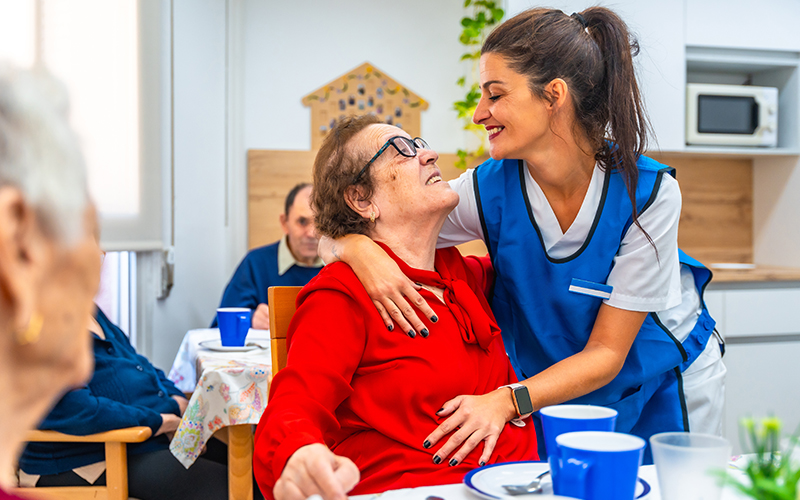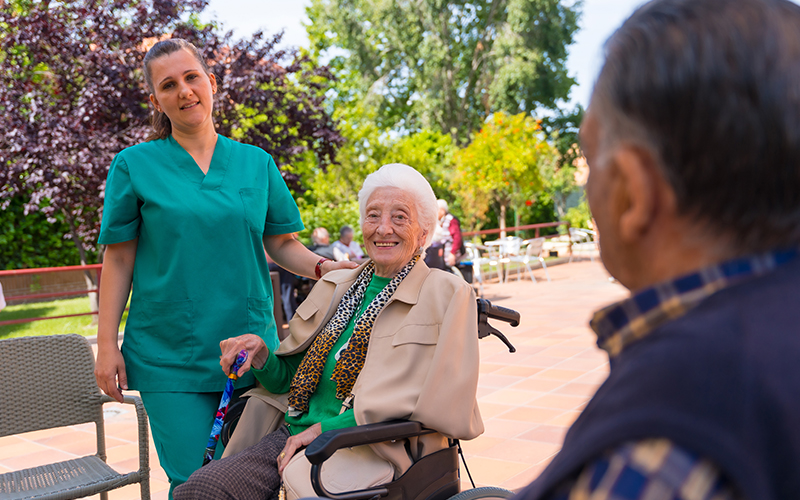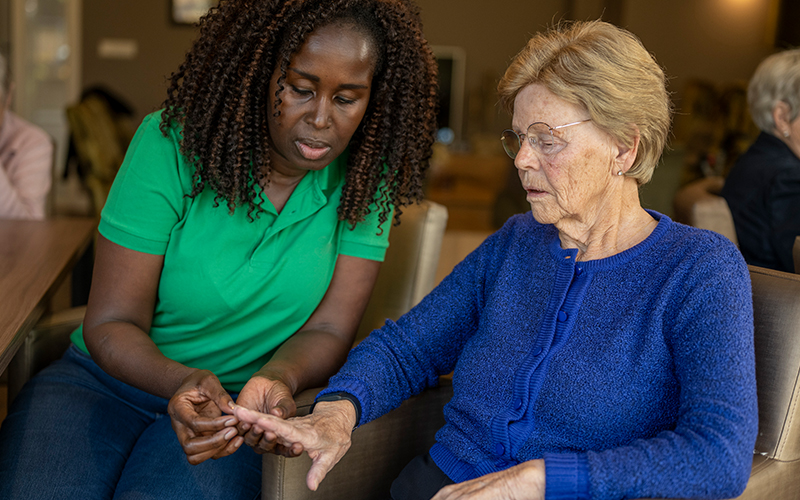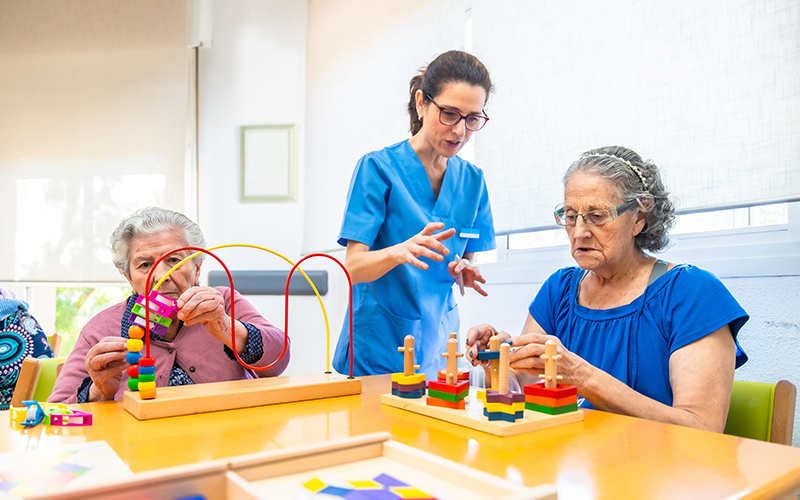Challenging Behaviour De-escalation Techniques
De-escalation techniques Durham are a vital part of the care strategy at Stockton Lodge & Denehurst Nursing Homes County Durham. In both dementia and EMI care, challenging behaviour can arise unexpectedly and may include verbal aggression, refusal of care, pacing, shouting, or emotional withdrawal. Rather than reacting with control measures, our teams focus on de-escalation — a respectful and structured response to early signs of distress.
De-escalation is not simply about calming someone down. It is about understanding what a resident is trying to communicate, identifying their needs, and supporting them through the experience in a safe, dignified, and empathetic way.
What is de-escalation in care?
De-escalation refers to strategies used to prevent challenging behaviour from escalating into a crisis. These include early intervention, non-verbal techniques, emotional validation, and redirecting attention. These approaches promote safety while respecting the resident’s autonomy and emotional state.
Why is de-escalation important?
Challenging behaviour often stems from fear, confusion, or pain. If met with resistance or confrontation, the behaviour can escalate. De-escalation helps break that cycle. A calm, respectful approach prevents further distress, supports communication, and preserves the trust between resident and carer.
Spotting early warning signs
Early signs of distress might include pacing, clenched fists, agitation, changes in voice tone, or unusual repetitive movements. Recognising these signs allows staff to intervene before the situation escalates. At Stockton Lodge & Denehurst, our carers are trained to observe and respond early and empathetically.
Using body language to defuse tension
Non-verbal cues play a powerful role. Open posture, slow movements, and maintaining an appropriate distance help residents feel safe. We avoid looming or standing directly over someone and instead approach from the side, using soft gestures and warm facial expressions.
Tone and choice of words
The words we use — and how we use them — can either calm or inflame a situation. We speak slowly, using simple, respectful language. Repeating instructions gently and avoiding authoritative tones is key. Phrases like “Let’s do this together” work better than “You have to do this now.”
Active listening and emotional validation
Residents want to feel heard. Even if what they say seems confused or illogical, we acknowledge their feelings. For example, if a resident believes they are late for work, we might respond, “That sounds important. Let’s check what time it is together,” rather than dismiss their concern.
Distraction and redirection techniques
Redirecting focus can break the intensity of a moment. A walk down the corridor, a favourite snack, or a comforting item can shift attention away from the source of agitation. This is especially effective when combined with soft verbal reassurance.
Creating the right environment
Environmental factors can influence behaviour. Overstimulating or noisy areas can heighten distress. We keep rooms tidy, reduce clutter, and control noise levels. Having access to calming activities such as music, sensory items, or gardens helps prevent escalation before it starts.
Empowering residents with choice
Many challenging behaviours stem from a loss of control. We offer residents choices wherever possible. This might be choosing between two outfits or deciding when to take a break from an activity. Providing control reduces resistance and builds trust.
Team communication and consistency
Consistency in how carers respond builds resident confidence. We use shared care plans and communication logs to ensure all team members apply the same strategies. This avoids mixed messages that can confuse or upset residents.
Involving families in de-escalation strategies
Families often know what works best. They may have personal techniques, phrases, or routines that help calm their loved one. We invite families to share this knowledge so we can integrate it into daily care routines, particularly for residents who are non-verbal or resistant to new carers.
Training and reflection
At Stockton Lodge & Denehurst, de-escalation training is ongoing. We role-play real scenarios and review past incidents to improve future responses. Reflecting as a team ensures we are always learning and growing in our approach to behaviour management.
Preventing escalation through early action
The best de-escalation happens before behaviour becomes challenging. This includes monitoring mood, recognising patterns, and being emotionally present with residents. We aim to identify when a resident is beginning to feel unsafe or anxious — and step in gently and early.
At Stockton Lodge & Denehurst Nursing Homes County Durham, our approach to challenging behaviour is rooted in empathy, observation, and respect. These de-escalation techniques in Durham have helped us create environments where residents feel safe, supported, and understood.
If your loved one is showing signs of distress or behavioural changes, contact us today. Our experienced team is here to support residents and families every step of the way.










